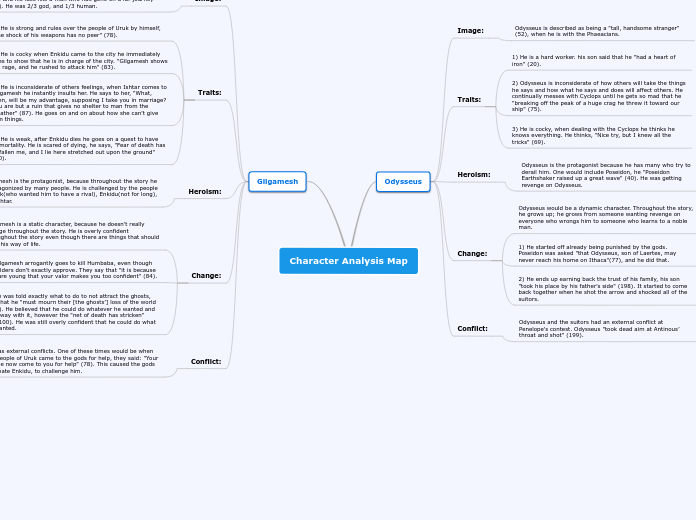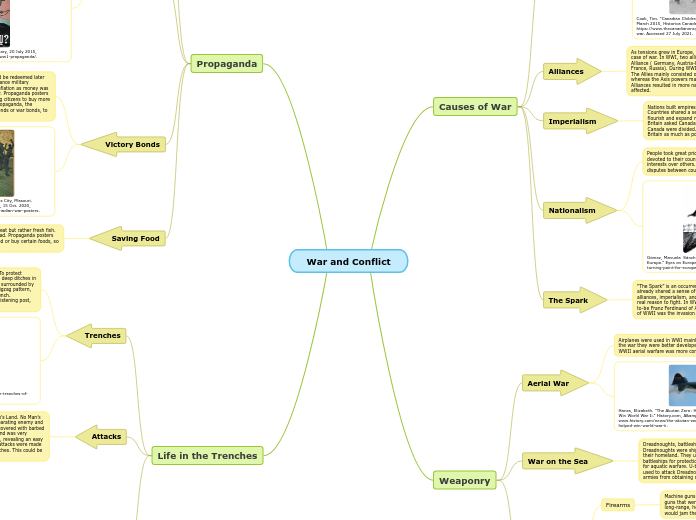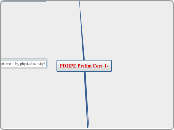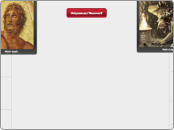によって Madison Skinner 6年前.
300
Character Analysis Mind Map
The character of Odysseus in the narrative is complex and multifaceted, showcasing a range of traits including hard work, cockiness, and inconsideration. His journey is marked by numerous challenges and antagonists, most notably Poseidon, who raises a great wave in revenge.









